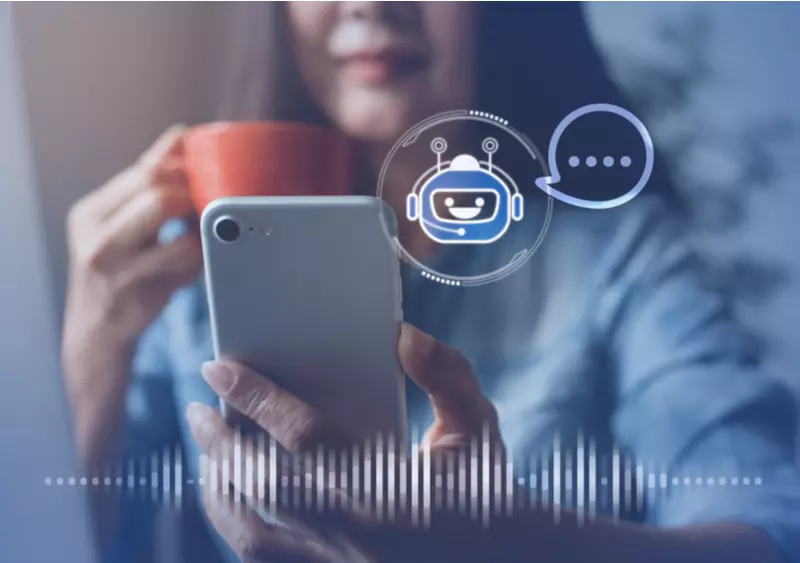Artificial Intelligence Trends in 2022
According to a 2020 survey, more than 50% of companies have adopted artificial intelligence in at least one business unit or function that year alone. Moreover, another study by Gartner predicts that AI software revenue will reach $62 billion in 2022 alone, an increase of 21.3% from 2021. Ultimately, the widespread adoption of AI in business is to automate processes, enhance personalization and customer service, and analyze data to obtain a competitive advantage. As a result, we expect significant advancement and adoption of artificial intelligence in the upcoming years. In this article, we explore the top artificial intelligence trends in 2022.
AI for Security

Video analysis, voice identification, and face recognition are examples of AI in security and hold the first place for artificial intelligence trends in 2022. For instance, AI in video surveillance can detect suspicious activities by focusing on abnormal behavior patterns. This ability creates more secure spaces by identifying potential threats. Also, voice and biometric face recognition technologies use computer algorithms to pick out distinctive details about a person’s voice and face to verify their identity. Therefore, AI can detect and prevent crimes such as fraud and identity theft.
Moreover, hacking and cybercrime pose significant risk to society and businesses. Experienced hackers can manipulate data used in model training, detect security faults, incorporate systems, and gain access to sensitive information. Nonetheless, AI algorithms are prevalent in various applications, including ones for detecting malicious software, monitoring corporate networks, and preventing cyber-attacks. AI’s smart algorithms can protect businesses and individuals from modern crimes by analyzing network traffic and recognizing patterns that suggest nefarious intentions.
Conversational AI
Conversational AI is another sector contributing to artificial intelligence trends in 2022. Conversational AI enables speech-based interactions across users and platforms to better engage with clients. It uses voice commands to receive and interpret directives, as well as offer appropriate responses.
Conversational AI combines machine learning (ML) and natural language processing (NLP) with traditional software like chatbots or voice assistants to help customers engage in contextual dialogue, either spoken or typed.
For context, machine learning is a field of computer science that builds software with algorithms that automatically improve themselves through repeated use. Natural language processing is a field of machine learning that focuses on modeling and interpreting language for the software to engage with humans effectively.
Chatbots enhanced with speech recognition interact with humans and respond to questions in natural language. With the ability to understand and communicate in human language, virtual assistants such as Alexa, Siri, and Google Home have eliminated the need for touchscreen devices and revolutionized how humans interact with technological devices.
Conversational AI is widely observed in the healthcare, banking, marketing, travel, and hospitality sectors. For instance, according to Insider Intelligence, consumer retail spending via chatbots is expected to reach $142 billion worldwide by 2024.
Companies use AI-driven chatbots to provide their clients with human-level communications and rapid responses, automate admin tasks, and leverage NLP to help detect fraud. For example, in the healthcare industry, chatbots can reduce the amount of manual work by organizing appointments, sending reminders to patients, and providing clients with answers to nonconfidential queries.
Artificial Intelligence and Environmental Protection
Artificial intelligence is being utilized to fight climate change and offer environmental protection solutions. As climate change intensifies the devastation from storms, tsunamis, droughts, and wildfires, many companies are turning to the latest AI developments to predict and limit its impact.
For example, the new AI technology is already being used to send natural disaster alerts in Japan and monitor deforestation in the Amazon by analyzing satellite imagery from the European Space Agency to find areas most prone to deforestation.
AI in Workplaces

In about every occupation, smart tools and services are emerging to help us do our jobs more efficiently, and in 2022, we will find AI a part of our everyday working lives. For example, as mentioned earlier, AI is already implemented in many sectors, such as AI in the healthcare industry, to reduce the amount of manual work.
In addition, we are already witnessing the implementation of AI tools in other functions, such as marketing, to help marketers determine which leads are worth pursuing. We are also seeing AI in engineering roles to provide engineers with predictive maintenance and let them know ahead of time when machines will need servicing or repairing. Therefore, seeing AI in workplaces is another artificial intelligence trend in 2022.
Future of Artificial Intelligence
Artificial intelligence has become a reality in the past few years. Throughout the years, AI solutions are becoming more popular, and the future of AI appears to be promising. AI-powered solutions can save humans from performing tedious, repetitive tasks like a text expander and let them focus on more complex and rewarding projects.
Undoubtedly, artificial intelligence is a revolutionary field of computer science, and its development and evolution are happening at a rapid pace. However, AI also deals with many controversies about its future and impact on human beings. Some view AI as monumental technology, while others view it as a threat to humans. However, one thing is for sure–if implemented responsibly, AI can benefit society.
Some artificial intelligence future trends may include:
- AI reaching human-level intelligence
- AI becoming a critical part of daily business operations across all professions
- Most devices such as toys, appliances, video game controllers, and drones will be embedded with intelligence
- Fully autonomous vehicles
- AI may help determine the best approach to diagnose, prevent, and treat certain diseases
- Adoption of household robots to help with chores
Conclusion
As of 2022, artificial intelligence has a more significant impact on our everyday lives. As a result, companies leverage artificial intelligence to simplify operations and make them more efficient. Even though artificial intelligence remains in the early stages of its adoption, businesses across different industries should consider improving their IT infrastructure and data management to benefit from the commercial applications of artificial intelligence.



